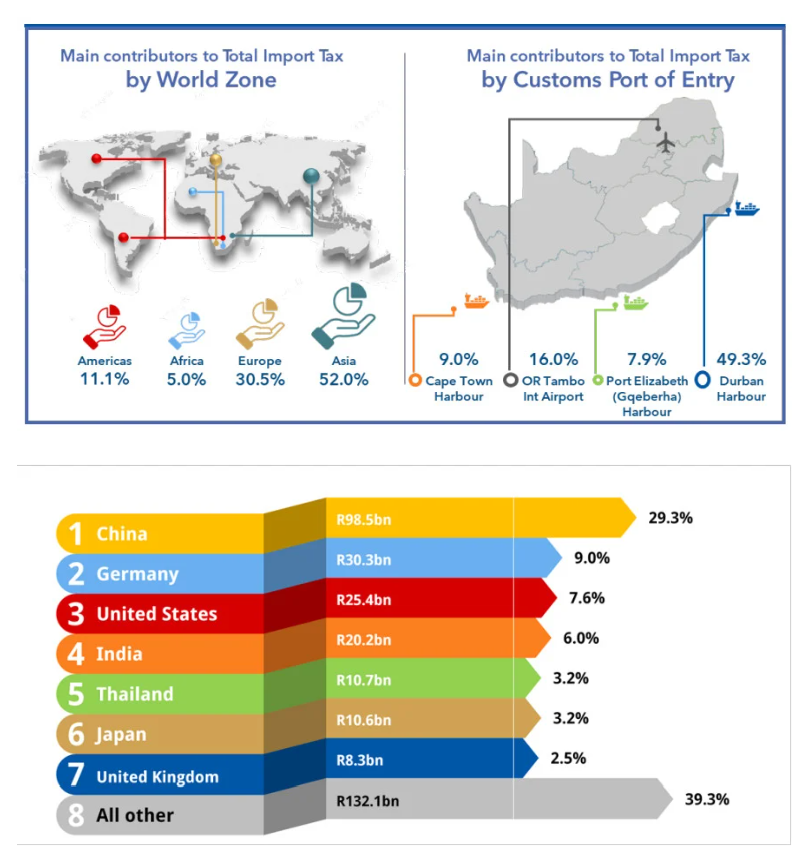
By Harry Scherzer, CEO, Future Forex
With South Africa’s preferential benefits under the African Growth and Opportunity Act (AGOA) uncertain, individuals and businesses are preparing for what many fear could be the end of our special treatment in the market, which will disrupt trade and investment. This shift would put pressure on US-South Africa relations, potentially leading to increased market volatility and economic uncertainty.
Since 2000, AGOA has allowed South Africa to export goods to the US duty-free, which gave it a pricing competitive advantage in that country. More than 10% of SA’s exports, worth around $14 billion, benefit from AGOA.
Losing access to AGOA, or attracting stricter tariffs from one of our key export markets could cause the rand’s devaluation, higher costs for consumers and potential job losses in key sectors like agriculture, automotive and textile.
There is also concern that South Africa is set to raise VAT this year: during last year’s mid-term budget, Finance Minister Enoch Godongwana suggested that tax increases might be on the cards, noting that raising VAT or personal income tax by one percentage point could generate R25 billion per year. VAT was last hiked in 2018 to 15%.

Market privileges under AGOA remain in place until the end of September 2025, unless it is extended, replaced, or cancelled. However, recent signals from President Donald Trump have cast doubt on whether an extension will materialise, or if stricter new terms will be imposed instead.
The signs are not good. Last week, Trump issued an Executive Order freezing aid to South Africa in response to its land reform law, while four leading US congressmen wrote to Trump and demanded he revoke South Africa’s AGOA benefits, accusing it of undermining US security and foreign policy interests.
A US president cannot unilaterally cancel AGOA since it is an act of Congress, but he can suspend or terminate a country’s eligibility based on reviews if it is deemed non-compliant with AGOA’s criteria, such as market openness, human rights and governance standards. He could also push Congress to amend or discontinue it.
Such a move would not only strain diplomatic and economic relations, but also trigger capital outflows, weakening the rand and increasing volatility. As trade routes shift and investors seek safer markets, it will not be a simple matter of seeking new markets for our goods.

Jobs on the line
One of the hardest-hit sectors will be the automotive industry. In 2023, South Africa exported 400,000 vehicles to over 100 countries – 22% of which were destined for the US, worth $1.88 billion.
As one of South Africa’s largest employers, this could result in job losses and reduced industrial output, further weakening the economy.
Agriculture is another sector at risk. South Africa has exported large quantities of citrus, wine and macadamia nuts to the US under AGOA. Without duty-free access, these products will become more expensive for American consumers, potentially leading to declining sales or encouraging American buyers to source their produce elsewhere.
The agricultural sector in South Africa is predominantly made up of Afrikaans farmers, and since Trump has publicly expressed his commitment to protecting these farmers – offering them refuge in the US – he may choose to maintain AGOA to avoid harming the very group he aims to protect.
Turbulent Times
Ultimately, we don’t know what lies ahead in terms of AGOA. Whether the US chooses to keep, scrap, or renegotiate it, the uncertainty alone puts added pressure on the rand.
What we do know, is that as an emerging market currency, the rand has always been volatile. It moves with global market pressures, domestic economic issues, and investor sentiment. And with South Africa’s relationship with the US on unsteady ground, we could see even more turbulence ahead.
That said, South Africa has been getting several things right locally. Loadshedding appears to be in the rearview mirror, Transnet is getting a handle on the ports, and upcoming visa reforms could give tourism a welcomed boost. While these improvements have made the rand more resilient amidst the current headwinds, resilience doesn’t equate to stability.

Protecting your wealth amid uncertainty
While the rand remains relatively strong, now is a good time for South Africans to consider diversifying offshore. As uncertainty grows, keeping your wealth tied up in rands becomes an increasingly risky move. While moving funds abroad can help mitigate that risk, it’s equally important to use the right international money transfer partner when doing so. Not only will a reliable provider handle compliance smoothly and save you time, but they’ll also offer a competitive exchange rate – so you don’t need to bear the extra burden of hidden bank fees and subpar service.
The next few months (and even years) are likely to bring even more unpredictability. Ultimately, anyone investing money offshore is taking positive steps towards securing their financial futures, and a transparent, client-centric foreign exchange provider will make it easier than ever to do that.
Share via:




















